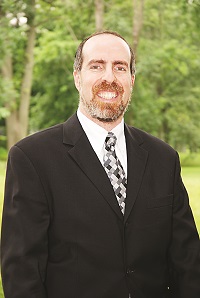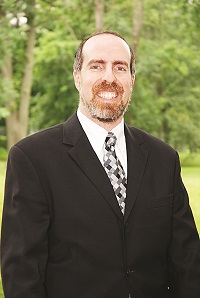
On Kippur we recite “Hayom ya’amid bamishpat kol yitzurei olamim—today everyone is placed in judgment.” Regarding a thorough yearly inspection (which involves walking the entire eruv—a far more comprehensive check than what is done each week) of an eruv we can say “Hayom ya’amid bamishpat kol helkei ha’eruv—today, every component of the eruv is placed in judgment.”
Almost inevitably, no matter how well-maintained an eruv, there is room for correction and improvement. Moreover, as my friend Kenny Wagner, head of the Tenafly Eruv Association, has correctly observed, an eruv that is not thoroughly inspected at least once a year easily deteriorates into a substandard or even invalid eruv. If we fail to create a culture of continuous improvement for a community, its standards slack and slip.
After noting the places for upgrades in each of the eruvin I visited, a powerful thought overcame me. I thought about how I carefully look at each component of the eruv to make sure the entire package is in the best possible shape. I asked myself whether I do the same to myself. While I am hired to review and constructively criticize eruvs, isn’t it far more important that I scrutinize my personality and behavior at least to the same degree as I do to community eruvin?
Am I treating my family as sensitively as I should, do I relate to everyone with respect and kindness? How is my relationship with Hashem? Do I pray properly or just go through the motions? How do I recite the Birkat Hamazon—do I say it properly or rush through it? Do I serve as a proper role model for my children and the youngsters in the community?
These are questions that each of us must pose. Each of us should create a culture of continuous improvement for ourselves. Just as an eruv that is not thoroughly reviewed annually deteriorates, each of us must engage in a yearly sober review of all aspects of our lives. Otherwise we are likely to reach an undesirable spiritual destination.
A significant lesson may be gleaned from eruv inspections and applied to the process of self-scrutiny. Regarding eruv inspection, Rav Mordechai Willig has observed that “many eyes” are necessary to yield proper insights into a community eruv. Indeed, Mishlei teaches “Teshua berov yo’etz—salvation is achieved through much consultation. The same applies to one’s annual personal review. The Mishnah teaches that “Ein adam ro’eh nigei atzmo—one does not detect his own shortcomings.” Consultations with one’s spouse, Rebbe, parents, siblings and even children may help us stay on track and get on the path that reaches to Hashem.
An annual review is an absolute essential to maintain and enhance one’s financial health and physical health. A business that does not undergo a yearly thorough review will most likely not succeed. Let us use the 40-day period stretching from Elul to Yom Kippur to undergo the type of introspection that allows our neshamot to shine and be in the best spiritual condition. The return on this investment of time and effort is priceless. There is no greater life than knowing that one is doing his best to fulfill the mission assigned to him by the Creator.
Rabbi Haim Jachter is the spiritual leader of Congregation Shaarei Orah, the Sephardic Congregation of Teaneck.










